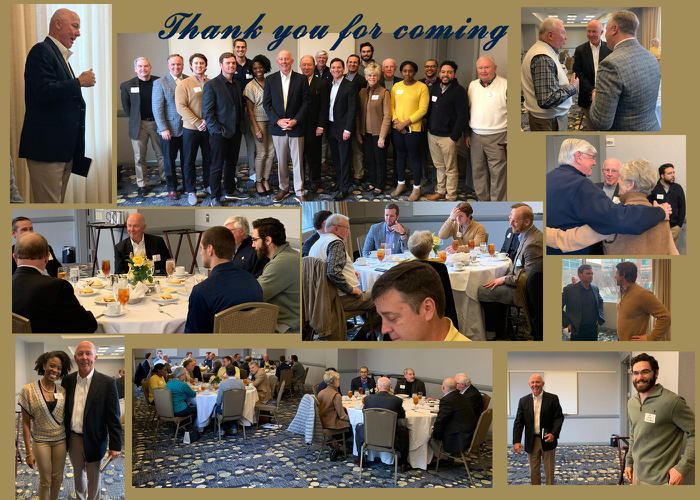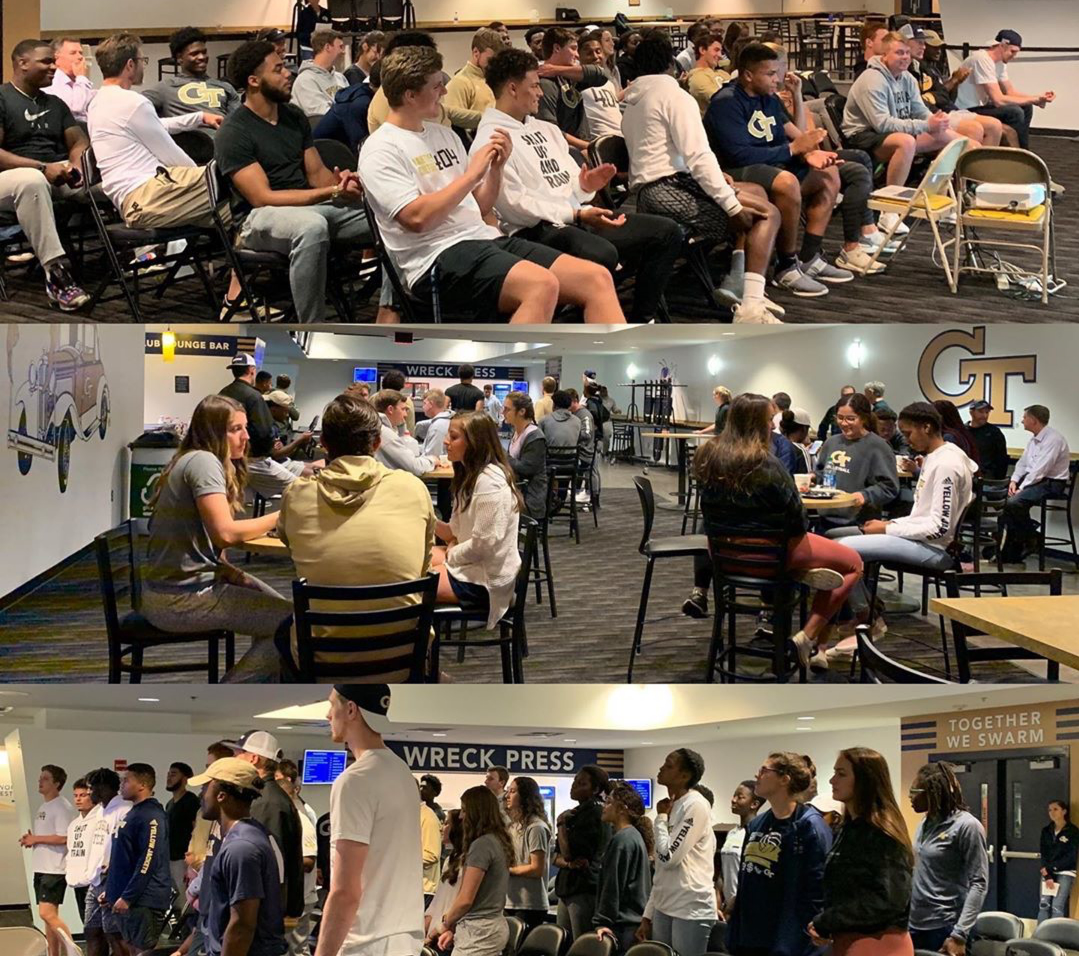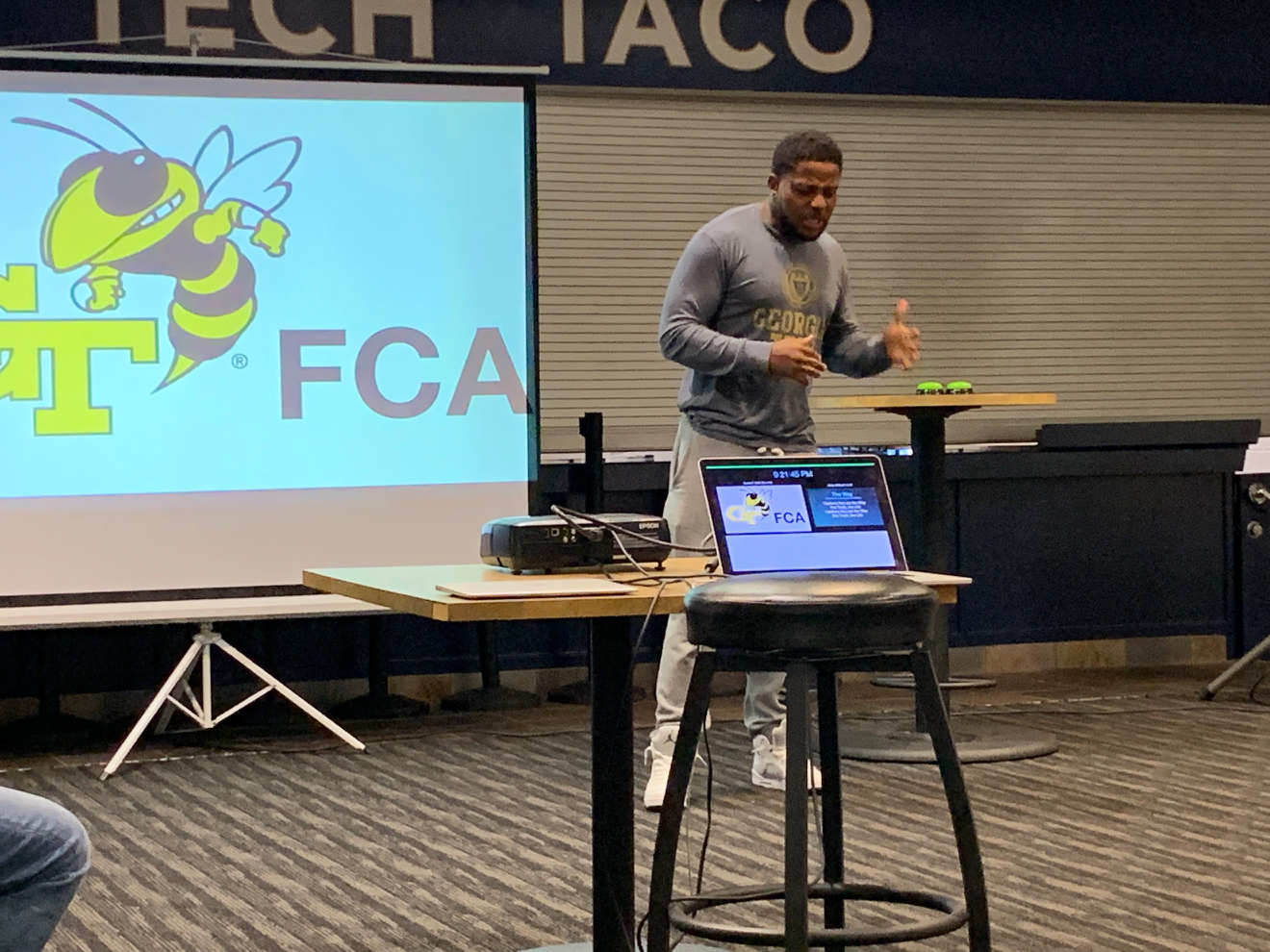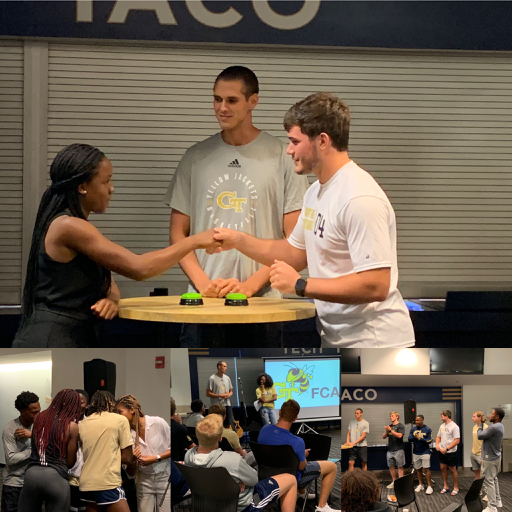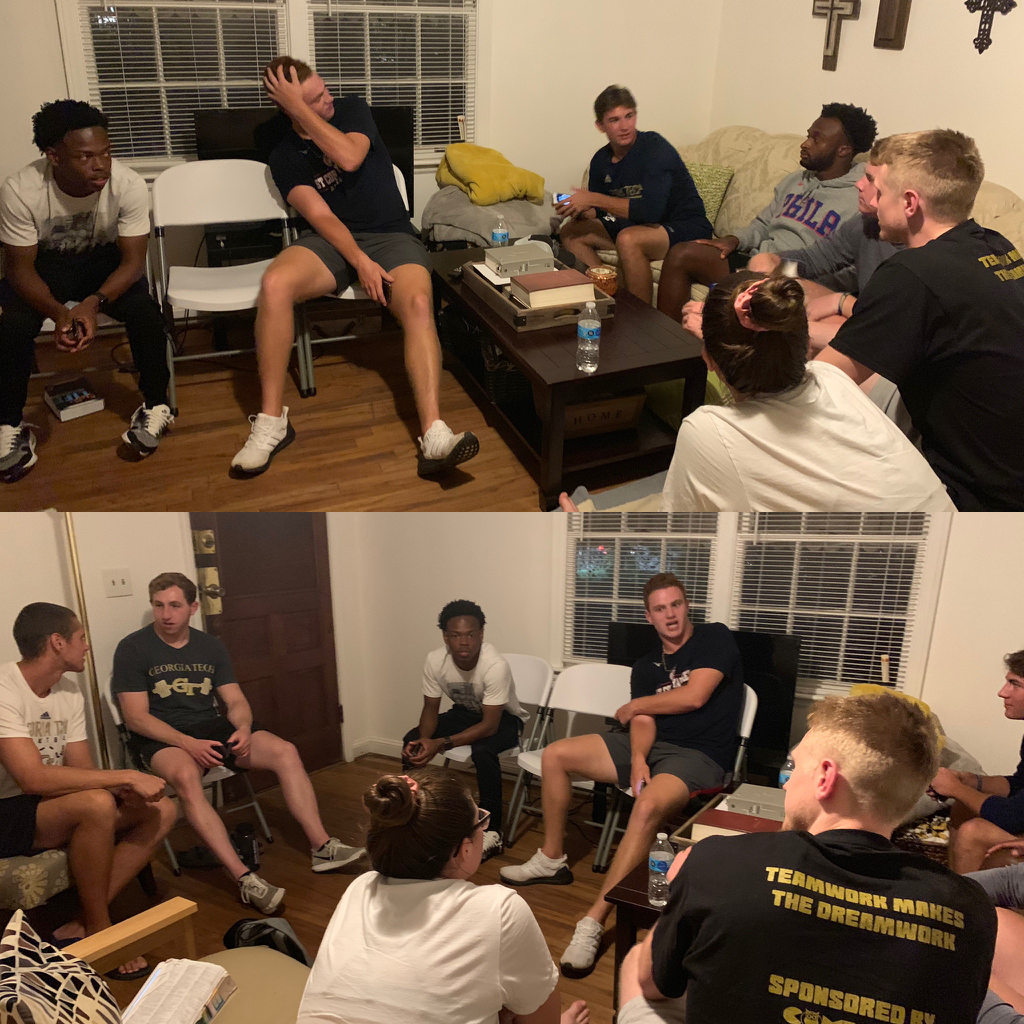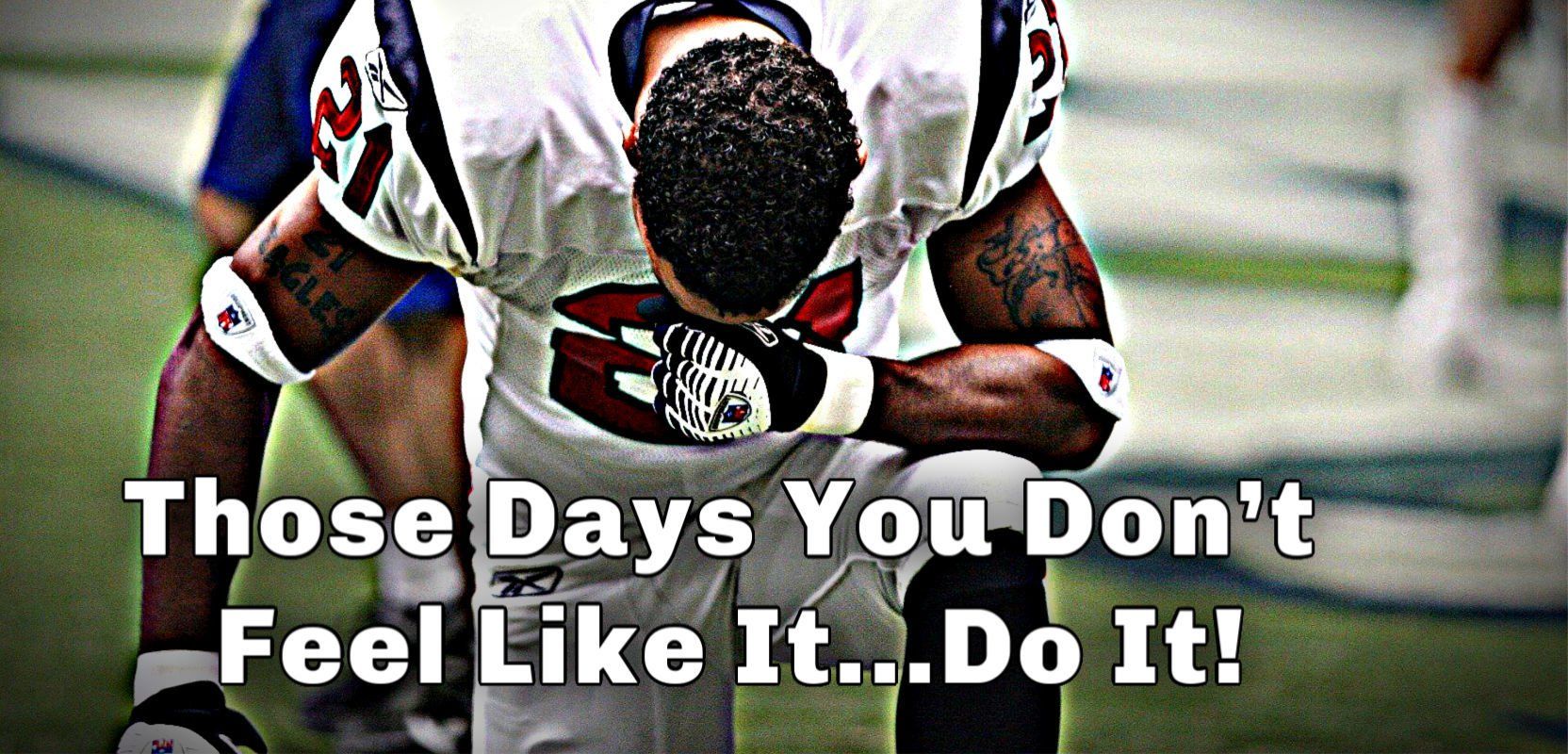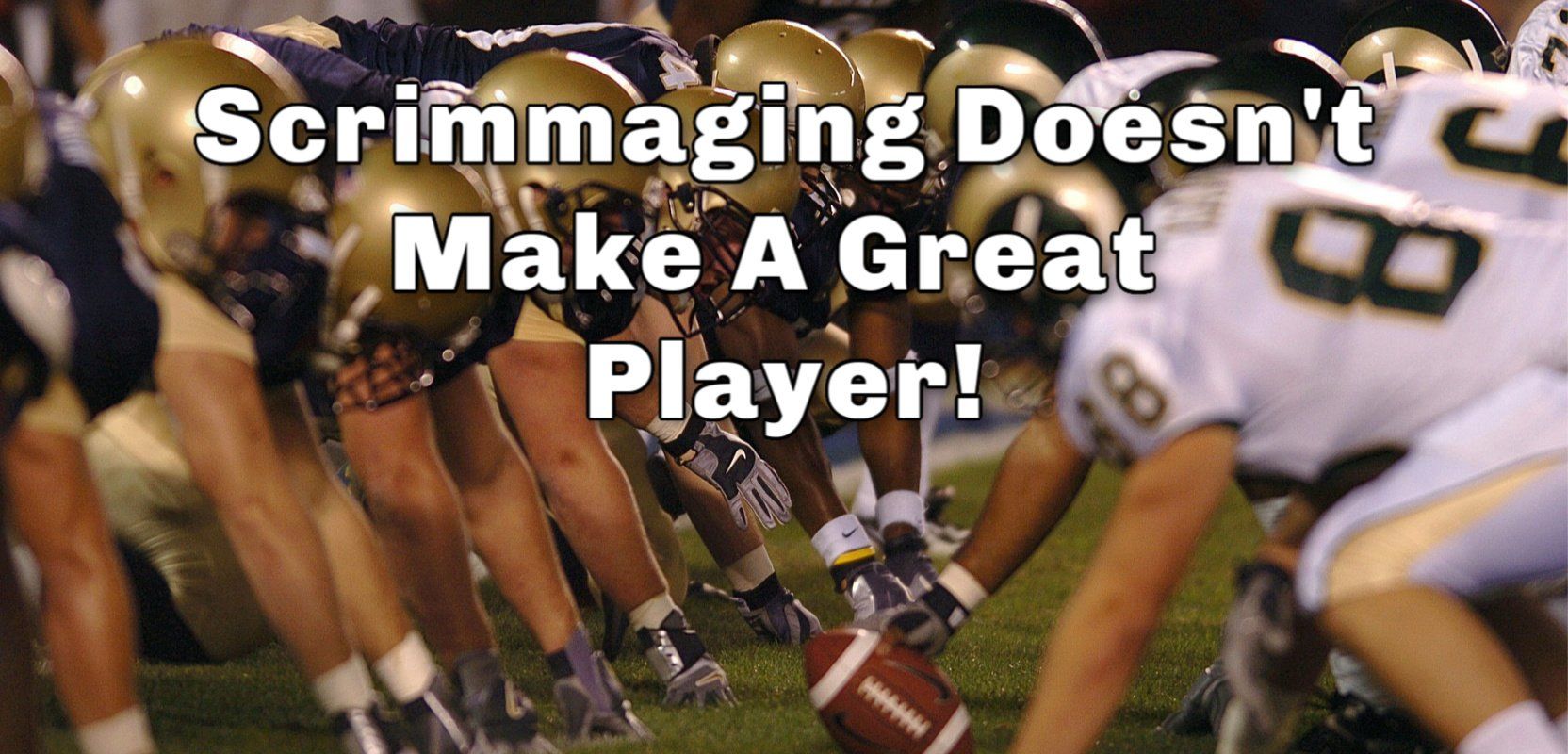By Roger Blythe (FCA at GT Board Member)
•
02 Oct, 2020
So, please go with me for a few minutes on a journey to explore why valuing the differences is so important and might make a difference in how we treat one another. Let's consider 6 questions on this topic: 1. How big of a deal is it to value the differences? 2. Why is it so hard to value the differences? 3. Are differences good or bad? 4. Is it even scriptural to value the differences? 5. If it is, what are the advantages of valuing the differences? 6. And finally, are there any boundaries to valuing the differences? To start, let’s look at God’s word to set the foundation for us. These scripture verses are the most important part of this devotional. Romans 12:3 – 8 For by the grace given me I say to every one of you: Do not think of yourself more highly than you ought, but rather think of yourself with sober judgment, in accordance with the faith God has distributed to each of you. For just as each of us has one body with many members, and these members do not all have the same function, so in Christ we, though many, form one body, and each member belongs to all the others. We have different gifts, according to the grace given to each of us. If your gift is prophesying, then prophesy in accordance with your faith; if it is serving, then serve; if it is teaching, then teach; if it is to encourage, then give encouragement; if it is giving, then give generously; if it is to lead, do it diligently; if it is to show mercy, do it cheerfully. Romans 14:1 – 3, 7 – 10, 16 – 19 Accept the one whose faith is weak, without quarreling over disputable matters. One person’s faith allows them to eat anything, but another, whose faith is weak, eats only vegetables. The one who eats everything must not treat with contempt the one who does not, and the one who does not eat everything must not judge the one who does, for God has accepted them. For none of us lives for ourselves alone, and none of us dies for ourselves alone. If we live, we live for the Lord; and if we die, we die for the Lord. So, whether we live or die, we belong to the Lord. For this very reason, Christ died and returned to life so that He might be the Lord of both the dead and the living. You, then, why do you judge your brother or sister? Or why do you treat them with contempt? For we will all stand before God’s judgment seat. Therefore do not let what you know is good be spoken of as evil. For the kingdom of God is not a matter of eating and drinking, but of righteousness, peace and joy in the Holy Spirit, because anyone who serves Christ in this way is pleasing to God and receives human approval. Let us therefore make every effort to do what leads to peace and to mutual edification. Romans 15:7 Accept one another, then, just as Christ accepted you, in order to bring praise to God. Questions 1 – How big of a deal is the notion of needing to value the differences? Let me ask, in general and in complete honesty, do you have more similarities or dissimilarities with the rest of humankind? How about with other U.S. citizens? Those you go to school with? Those you worship with? Those you hang out with, aka, your friends? How about members of your own family? Be honest – have you ever found anyone that was exactly like you – not in looks, but in beliefs, preferences, opinions, points of view, everyday choices? If you have, which I think would be rare, out of the population on the planet how many of your fellow 7 billion inhabitants are exactly like you? So, the point is that this is a pretty big, relevant deal. The rest of the world is different from you and you from them. It’s something we all live with every day. Question 2 - Do you find it hard to be accepting and even valuing things and individuals that are different? I think most of us do. Why is that? I can think of at least 2 reasons; there are probably many more, but number one for me is I like to be right. There’s a sense of pride in being right. I am right – that feels good; it builds our self-esteem to be right. No one wakes up in the morning thinking I wonder how many times today can I be wrong – wouldn’t that be the best day ever – to break a record on not being right. No, that’s not how most of us think. We like being right. The second reason it’s hard to value the differences is that it’s so very comfortable to be around and deal with people or things that are similar or familiar. If you’ve ever changed dorm rooms or apartments or even if you’ve just bought a new chair to sit in at home, there’s that period of change and difference that’s just not comfortable. Same = comfortable. Different = uncomfortable. Question 3 - Are differences good or bad? Or are they just different? I can tell you for sure, some differences are downright outstanding. For those of you that have a boyfriend or girlfriend, do you remember the first time you laid eyes on that special someone? Did you value the things that were the same about you or the things that were different? I can remember to this day the first time I saw my now wife Connie. It was in the parking lot of the church we attended – church, by the way, is a great place to meet your mate for those of you still looking. She had a glow about her that made her stand out from all the others – beautiful hair, sparkling green eyes, and an infectious smile. I can assure you I had none of those things. But also, over time, Connie and I discovered differences we didn’t value as much. I discovered early on that Connie is really social – me, not so much, although I think she’s taught me how to be better at that. It was not uncommon for me to come home from work only to discover that we were having or are already had guests for dinner. Now, after a full day at work that was not the first thing on my list of fun things to do – entertain dinner guests. When we go on vacation, particularly when we were able to travel internationally, I being a planful person, have been known to fill every waking moment with some meaningful (to me) event. This does not energize Connie. But perhaps she would say she’s seen some things she might have missed otherwise – but more likely she would say – I wish we had relaxed more. Which one of us is right? Or are we just different on those things? Question 4 – Is it even scriptural for Christ followers to value differences in others? The scripture we looked at in Romans I believe clearly supports the notion of valuing the differences. Paul gives a very clear illustration about our own bodies – we have one body, but an incredible number of different parts – very different – our eyes are nothing at all like our ears. Our feet, other than having five appendages, are nothing like our hands and you can go on and on. And then he talks about the different gifts – prophesy, service, teaching, encouragement, giving, leading, and mercy – all very different, all extremely valuable. And then in Romans 14, Paul talks about the differences of opinion on trivial matters (although at the time it wasn’t so trivial in some peoples’ minds) about the kinds of food to eat. In verse 17, it says “For the kingdom of God is not a matter of eating and drinking (how trivial), but of righteousness, peace, and joy in the Holy Spirit.” But it’s not just those few scriptures in Romans that convinces me – although that would be enough. As I look at the totality of Christianity, it is all about being "different". I mean really different! The Sermon on the Mount in Matthew 5 is filled with Jesus’s teaching about how things are different for His followers: 5:11 Blessed are you when people insult you. 5:39 If someone strikes you on the right cheek turn to him the other. 5:40 If someone wants to sue you and take your tunic, let him have your cloak as well. 5:41 If someone forces you to go one mile, go with him two miles. 5:44 Love your enemies and pray for those who persecute you. And then, if that were not enough, there’s Romans 5:6 – 8: You see, at just the right time, when we were still powerless, Christ died for the ungodly. Very rarely will anyone die for a righteous person, though for a good person someone might possibly dare to die. But God demonstrates his own love for us in this: While we were still sinners, Christ died for us. Christ – who was and is perfect – died for me, the ungodly. Most religions teach that heaven is earned, but we know differently – it’s a gift. Questions 5 – Are there any advantages to valuing the differences? I’ve already talked about a few, but here’s a few more, whether at school, work, home, worship, community service, wherever: 1. It shows respect to others – we are all made in God’s image, regardless of race, gender, ethnicity, or social standing 2. It helps us think less highly of ourselves than we should. It’s so tempting at school or work where there is membership in select groups or teams or a formal structure with titles for individuals to think more highly of themselves than they should. It is extremely important for individuals with “titles”, “positions” and “memberships” to value the differences. 3. There is a pretty good chance we will learn something – we may discover things we had not thought about; we may learn more about ourselves and why we believe what we believe. 4. It contributes to harmony. Is it more fun and is it easier to be with someone that will at least listen or is it more fun and easier to be with someone who has all the answers? 5. There’s a good chance you will discover and produce a better outcome. Question 6 – Are there any boundaries to valuing the differences? I think there clearly are. Again, God’s Word is the light to our path. I believe the 10 Commandments (not the 10 Suggestions) are a good place to start. I think Jesus also gave us His boundaries in all of His teachings which He summed up nicely by saying in Matthew 22:37 – 40: “‘Love the Lord your God with all your heart and with all your soul and with all your mind.’ This is the first and greatest commandment. And the second is like it: ‘Love your neighbor as yourself.’ All the Law and the Prophets hang on these two commandments.” So did Jesus’ clarification of the 2 greatest commandments make the boundaries bigger or smaller – that might make for another good devotional. But regardless of how big you believe the boundaries are, I believe there is enormous room to value what is different. In summary, let's review our 6 questions about valuing the differences: Does it matter – yes Is it hard – yes Are differences good or bad – they are in most cases just different Is it scriptural – yes Are there advantages – yes Are there boundaries – yes I pose a challenge to you and myself to look for every opportunity to value the differences . They won’t be hard to find – they are all around you. If we will, I believe we will bring pleasure and glory to God. I encourage you to pray this prayer with me: To you Oh God be all honor and glory this day. You have fearfully and wonderfully made us – there is no one exactly like me. Yet we are the same in our need for redemption. All of us have sinned. All of us have fallen short of Your glory and we all deserve the same eternal fate, but You, oh God, did not give up on us. So, in the midst of our incredible differences, you have provided the same way to glory through your one and only Son. So we give thanks for that today. As we are united in our Spirits with that one main thing that makes us the same, help us also each day to be aware and alert and sensitive to our differences. Help us respect and respond to those in a way that would be pleasing to you. I give myself to your service this day. With a grateful heart I lift up this prayer in Jesus name – Amen.
